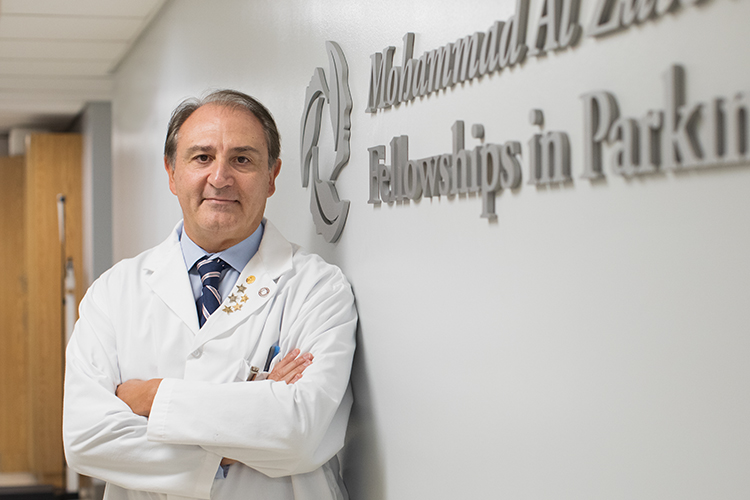Mobile Menu
-
Culture & Inclusion
- Vice-Chair, Culture and Inclusion
- Mentorship
- Physician Wellness
-
Equity, Diversity and Inclusion
- Department of Medicine Land Acknowledgement
- Statement Against Racism and Violence
- Educational Resources on Anti-Racism and Anti-Oppression Practices
- Glossary of Terms: Equity, Diversity and Inclusion
- Inclusion and Diversity in the Faculty of Medicine (FoM)
- Black and Indigenous Medical Society
- 2SLGBTQ+ Think Tank
- Summit for Women in Academic Medicine
- Demographic Survey Results: Fall 2021
- Guidelines for Department of Medicine Search Committees Using an Equity, Diversity, and Inclusion Lens
- Faculty Survey
-
Education
- Vice-Chair, Education
- Wellness Resources for Faculty & Trainees
- MD Program
- Royal College Training Programs
- Learner Mistreatment
- Competency Based Medical Education
- Fellowships
- Master Teacher Program
- Training Verifications
- Eliot Phillipson Clinician-Scientist Training Program
- Continuing Professional Development & Quality Improvement
- Quality & Innovation
- Education Research & Scholarship
- Person-Centred Care Education
- Documenting Teaching Activities
- Authorship Guidelines
- Awards
- Faculty of Medicine Education Policies
- Translational Research Program
- Core Internal Medicine Accreditation
-
Research
- Vice-Chair, Research
- Research by Division
- Eliot Phillipson Clinician-Scientist Training Program
- Research Institutes & Centres
- Research Ethics & Integrity
- Authorship Guidelines
- Endowed Chairs and Canada Research Chairs
- Funding Opportunities
-
Student Research Opportunities & Funding
- Queen Elizabeth II Graduate Scholarships in Science & Technology (QEII-GSST)
- David Cornfield Melanoma Fund Award
- Graduate Studies Endowment Fund (GSEF)
- Brian Morrison Graduate Memorial Award in Palliative Medicine
- Hold’em for Life Oncology Fellowship
- Jay Keystone Global Health Award
- Douglas Wright Melanoma Award
- Research Committee
- New Scientists
- Translational Research Program
- Quality & Innovation
-
Divisions
- Cardiology
- Clinical Immunology & Allergy
- Clinical Pharmacology & Toxicology
- Critical Care
- Dermatology
- Emergency Medicine
- Endocrinology & Metabolism
- Gastroenterology & Hepatology
- General Internal Medicine
- Geriatric Medicine
- Hematology
- Infectious Diseases
- Medical Oncology
- Nephrology
- Neurology
- Occupational Medicine
- Palliative Medicine
- Physical Medicine & Rehabilitation
- Respirology
- Rheumatology
-
Faculty
- Faculty Directory
- Recruitment
-
Academic Appointments
- Academic Position Descriptions
- Clinical Faculty Academic Appointments
- Departmental Division Director Position Description
- Professors Emeriti
- Non-Clinical Academic Appointments
- Clinical Cross-Appointments
- Graduate Appointments
- Department Appointments Committee
- Clinical Associate Appointments
- FAQ: Academic Activities for Clinical Re-Appointments
- New Faculty
- Appointments & Awards
- Continuing Faculty Appointment Review (CFAR)
- Junior Promotion
- Annual Faculty Review
- Senior Promotion
- Clinical Faculty Advocate
- Clinician Teachers
- Faculty Development
- Professionalism/Code of Conduct
- WebCV
- Expense Claims, Honorariums & Waivers
- Policies (Industry Relations, Conduct, Promotions, etc.)
- Documenting Teaching Activities
- Authorship Guidelines
- Program-Specific Resources
-
About Us
- Welcome
- Why Toronto?
- History of the Department
- Vision & Strategic Priorities
- Our Leadership
- Our Support Staff
- Location & Contact
- Departmental Committees
- Department of Medicine Prizes & Awards
- Department of Medicine Resident Awards
- Department of Medicine: Self-Study Report (2013 - 2018)
- Department of Medicine: Self-Study Report (2018 - 2023)
- Communication Resources
- News
- Events


 Three Department of Medicine researchers have been named fellows of the Canadian Academy of Health Sciences - one of the most esteemed honours for academics in the field. The Department of Medicine faculty members were among
Three Department of Medicine researchers have been named fellows of the Canadian Academy of Health Sciences - one of the most esteemed honours for academics in the field. The Department of Medicine faculty members were among 